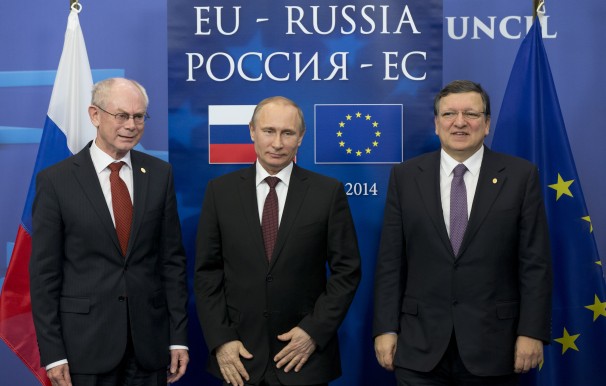Over the past months, EU has been hit hard by two major setbacks. First, it is staring at a colossal failure in Ukraine and the second, it is still figuring out how to deal with Trumpism.
Because of these two radical changes, the fragile foundation of EU and Nato’s foreign policy has not just shifted—it has collapsed.
These nations have realised that blindly following USA’s lead all these years was not a great idea and seeking independence was the only way forward. Over the last three years, EU followed into USA’s footsteps to impose sanctions on Russia, scuttle its trade ties with Moscow and wean itself off Russian energy. Thanks to Trump, the cracks are beginning to appear now.
Some within the European establishment are finally beginning to question long-held assumptions.
The Financial Times has reported that now heavyweight EU nations like Germany are considering what was once unthinkable—resuming direct purchases of cheap Russian energy.
This is the EU’s massive U-turn, although for its own good. Frankly speaking, these sanctions should never have been imposed given the economic viability of cheap Russian sources. Facing pressure from Washington DC, EU earlier declared it would end energy trade with Russia within the next three years.
But that plan has now gone for a toss. While Europe has ended up making its energy dramatically more expensive, leaving its industries struggling with gas prices three to four times higher than in the U.S., it has failed to fully wean itself off Russian energy. Bloomberg reports that Moscow remains one of the EU’s largest gas suppliers, with the last year seeing record imports of Russian LNG.
You see, as long as Washington DC dictated EU’s Russia policy, European nations endured massive economic stress.
After all, the West’s economic war on Russia was meant to cripple its economy. Instead, Russia’s GDP is projected to grow between 3.8% and 4% in the previous fiscal year—far outpacing economic powerhouses like France (0.8%) and Germany (-0.2%). Even the EU as a whole is projected to grow only 0.9%, with Spain as the lone exception.
The West also fancied that it could isolate Russia on the global stage. But the opposite has happened. Most of the world refused to join Western sanctions. Nations like India and China even doubled down on trade with Russia, keeping its economy up, alive and kicking.
Russia today is not just surviving—it is thriving. The Global South increasingly sees Moscow as a model of resistance against Western pressure. Russia has expanded its influence through alliances such as BRICS and deepened its partnerships with China, Iran, and North Korea.
The West’s attempts to use international law as a geopolitical weapon against Russia have also backfired.
Perhaps the most glaring failure of all was the West’s expectation that a military and economic collapse would trigger regime change in Moscow. That, too, has failed spectacularly. Instead, the Russian government remains firmly in control, with public support only growing stronger.
In fact, Russia’s Putin enjoys far wider support and approval rating among the masses when compared to his EU counterparts.
In short, every aspect of EU-NATO Europe’s approach to Russia and Ukraine has been a disaster. The bloc’s leaders now face the consequences of their own choices.
The fact that some within the EU bureaucracy are now daring to suggest a return to Russian energy is significant.
The trend speaks volume of the fact that EU can’t survive without Russian energy and the expensive imports from the US are not feasible.
Could this mark the beginning of a larger transformation—one in which Europe finally breaks free from its toxic dependence on the U.S. and rebalances its ties with Russia?
Only time will tell.








